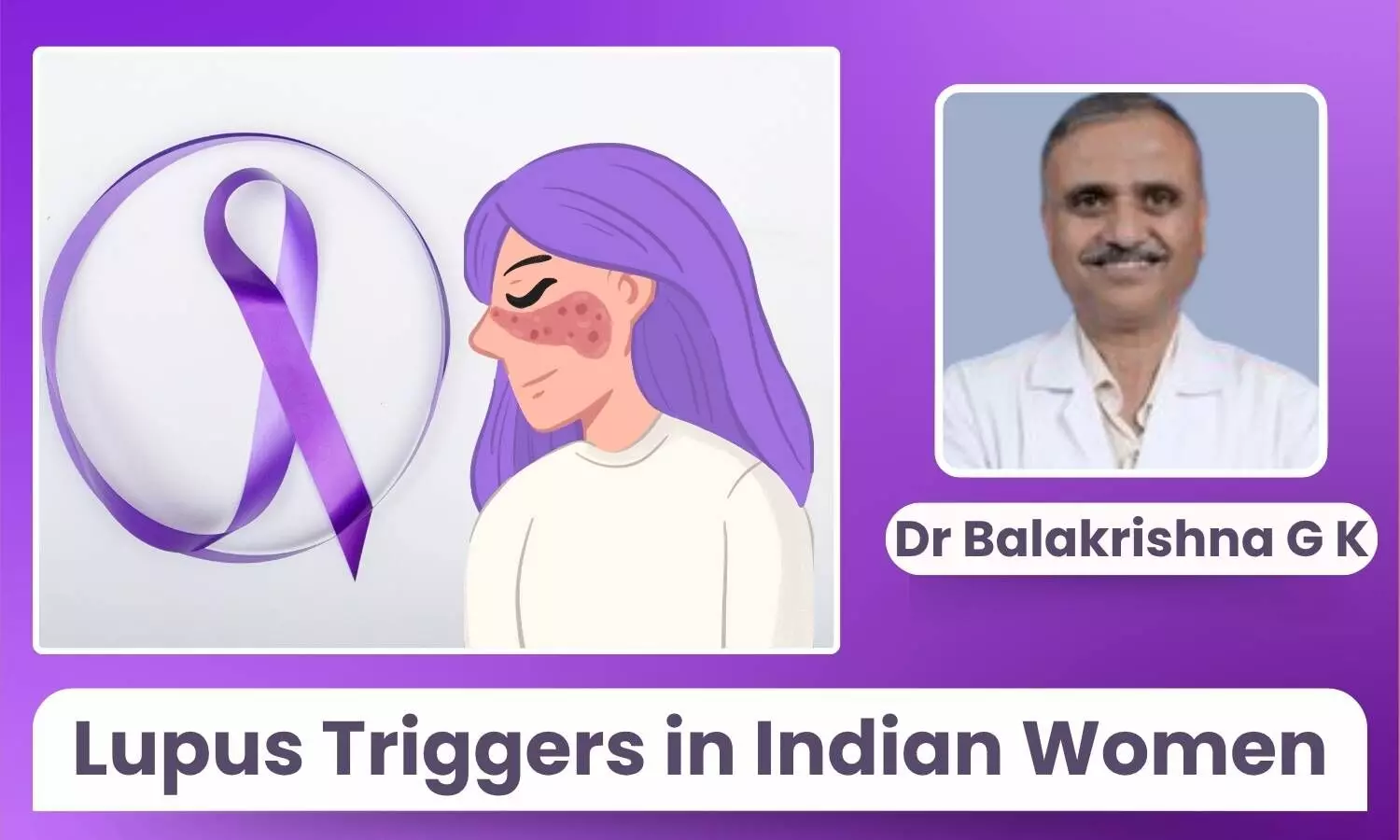Sunshine and Stress: Everyday Triggers That Flare Lupus in Indian Women - Dr Balakrishna G K

When Fatigue Isn’t Just Tiredness
In the outpatient clinic, it’s not uncommon to meet young women who’ve been living with mysterious fatigue, achy joints, or recurring rashes. Many have gone from one doctor to another, often being told it’s “just stress” or that they need more vitamins.
But beneath these vague symptoms, there's sometimes a more serious condition quietly progressing, lupus. Lupus is an autoimmune disease, which means the body’s own defence system starts attacking its tissues.
It doesn’t follow a fixed pattern and can affect different people in different ways, skin, joints, kidneys, even the brain. But in India, especially among young women, there are some very specific and avoidable triggers that tend to set it off.
Why Sunlight Can Harm
Sunshine is usually associated with good health. But for someone with lupus, even a short time outdoors can lead to a flare-up. This is because UV rays can activate the immune system in harmful ways.
In India, where temperatures soar for most of the year and shade is hard to find during daily errands, this becomes a real issue. A simple walk to catch a bus or an hour spent at an open-air market can lead to days of fatigue, joint pain, or skin breakouts.
Protective clothing, sunscreen, and staying out of the midday sun aren’t just beauty tips, they’re essential for managing this condition.
Stress: Hidden Trigger
Then there’s the other big trigger: stress. And not just emotional stress, physical strain, sleepless nights, skipped meals, long hours at a screen. Many women today are balancing work, home, children, and elderly parents, often with little time for themselves.
This constant pressure builds up in the body. For someone with lupus, it’s like throwing fuel on a slow-burning fire. The immune system reacts, inflammation spikes, and before they know it, the symptoms come rushing back.
Even something as ordinary as a change in routine, a late-night work call, or an argument at home can tip the balance. Learning to listen to one’s body and slow down when needed becomes part of living with lupus.
Food, Commute, and Pollution Matters
Indian diets are rich and comforting, but not always lupus-friendly. Foods high in salt, sugar, and processed oils can worsen inflammation. Many patients also report that irregular meal times or dehydration during hot days make them feel worse.
Urban air pollution is another trigger that rarely gets the attention it deserves. Constant exposure to fumes and dust can subtly irritate the lungs and immune system. For women commuting long distances every day, this low-level inflammation becomes part of daily life, and it’s not helping.
Why Lupus Is Often Missed
One of the most difficult aspects of lupus is how often it’s missed or misunderstood. Women are told they’re just overworked or that their symptoms are "in their head." Many go undiagnosed for years.
The symptoms, fatigue, joint pain, skin issues, hair fall, overlap with so many other conditions like thyroid problems, PCOS, or anaemia. That’s why it’s so important to look at the full picture and consider lupus, especially if these symptoms keep coming back or don’t respond to usual treatments.
When to Get Checked
If you're experiencing any of the following on a regular basis, it’s worth speaking to a specialist:
- Exhaustion that doesn’t improve with rest
- Rashes, especially one across the nose and cheeks
- Swelling or stiffness in joints
- Hair thinning without a clear cause
- Feeling worse after time in the sun
- Mouth ulcers that keep coming back
- Low-grade fevers that come and go
You don’t need to have all of them. Even two or three, when persistent, could indicate something deeper.
Listen to Your Body
Lupus doesn’t have to stop you from living a full life. But early detection and the right treatment make all the difference. Medications can help control flares, but it’s the everyday choices, avoiding triggers, eating well, managing stress, that give the best long-term results.
If you’ve been struggling with vague, ongoing health issues, especially as a woman in your 20s or 30s, don’t brush them aside. Get a proper evaluation. Sometimes, the body whispers before it screams. Don’t wait for it to get louder. Visit a specialist and get the answers you need.


